 The Anglican Church of Canada is trying to decide how those who worship the gods of inclusion and diversity can get along with those who prefer to worship God the Father, Son and Holy Spirit. Since it’s impossible, the church is industriously tangling itself into dense knots of confusion in the hope that the resulting impenetrable obfuscation will lull everyone into a passive torpor, unable to think straight, let alone act coherently.
The Anglican Church of Canada is trying to decide how those who worship the gods of inclusion and diversity can get along with those who prefer to worship God the Father, Son and Holy Spirit. Since it’s impossible, the church is industriously tangling itself into dense knots of confusion in the hope that the resulting impenetrable obfuscation will lull everyone into a passive torpor, unable to think straight, let alone act coherently.
In the latest Council of General Synod meeting, members suggested that there should be a “variety of understandings of marriage”. No one seemed interested in defining the limits of the variety: should it end before or after polyamorous gender-fluid ménages?
It doesn’t help that someone proposed making marriage value-free in a similar vein to the church being doctrine-free. There is nothing more lasting than a valueless marriage:
“any acknowledgement should not include any explicit or implicit value judgment, namely that one form of marriage is somehow better or more virtuous than the other.”
In order to cut through the chaos, Fred Hiltz is proposing an amendment to an amendment – a bit like growing a pimple on a boil – in order to protect the losers in the 2019 Marriage Canon vote. All meaningless twaddle, of course, since, as Bishop William Love discovered, when Presiding Bishop Michael Curry (the excitable “All you Need is Love” wedding preacher – unless it’s a bishop called Love who doesn’t toe the LGBT line) restricted his ministry, nothing stops the Anglican homoerotic rainbow steamroller.
Read about the whole sorry mess here:
A desire to stay together as a church, despite a diverse range of understandings of what marriage is and should be.
That theme arose consistently during discussions across three sessions at the November meeting of Council of General Synod (CoGS) regarding the proposed amendment to the marriage canon.
But exactly how this “theme,” or aim, may be fulfilled is more complicated.
In a session titled “Marriage Canon: Way Forward, Next Steps” on November 25, CoGS members began to consider the potential for an acknowledgement of a variety of understandings of marriage within the Anglican Church of Canada.
At the meeting, CoGS members broke into table groups to discuss the questions, “Do you think it would be helpful if in considering the change to the canon, it would include an expression of acknowledgement of and respect for a continuing variety of understanding of marriage within the Anglican Church of Canada?” and “What might such an acknowledgement include?” All of the table groups reported back on their discussions to say that, yes, it would be helpful to name that there are different understandings and teachings of marriage.
Details of how this acknowledgement might look were more nuanced.
One group suggested that “accommodation should be made for our Indigenous brothers and sisters,” and that Indigenous communities should have the right to make their own decision on the matter.
Another group noted that as soon as accommodations are made for one point of view, questions arise about other viewpoints. “Each of us is perceived as being marginalized depending on where you stand in the story…[if] we’re saying we’re bracketing one particular group, what happens if the motion goes in a completely different direction…maybe we need to create a bracket for someone else. If we’re walking together, how are we really going to do that?” Another group said that whatever is proposed must be clearly laid out, to avoid legal challenges.
“We have to admit that we are different, we have different views…if we’re going to do this, both views have to be clear in saying this is part of the doctrine of our church… and we walk together in love.”
Another table pointed out that careful attention must be paid to language: “any acknowledgement should not include any explicit or implicit value judgment, namely that one form of marriage is somehow better or more virtuous than the other.”
Like this:
Like Loading...
I was very disappointed not to have been with our delegates on account of my illness as the vote on the marriage canon occurred tonight. All that I can say is that I’m very sorry for all the feelings of hurt that this vote has caused, and that I urge everyone to pray for the Anglican Church of Canada.



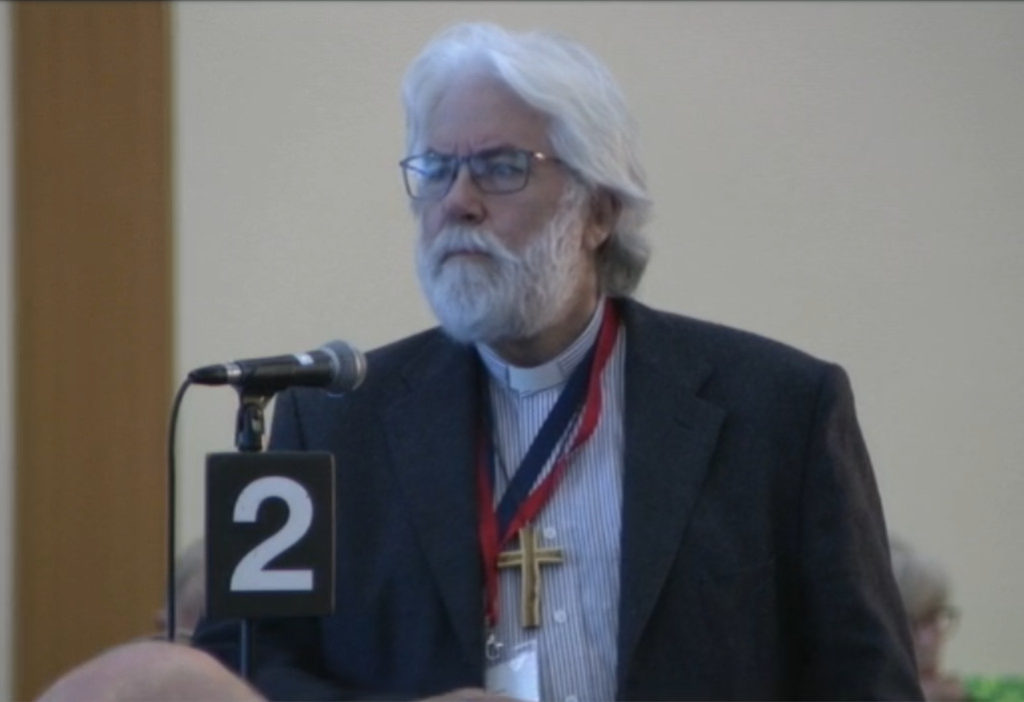 I’m watching the live stream of GS2019. The discussion is about the change to the Marriage Canon. A motion has just been made to close debate. That means that Bishop David Parsons will not be able to express his views; apparently something similar happened in 2016. I wish I had recorded it, but the gist of it was that, in spite of all the talk about respect for all points of view, not much respect was being shown to the bishop – who, of course, disagrees with the motion.
I’m watching the live stream of GS2019. The discussion is about the change to the Marriage Canon. A motion has just been made to close debate. That means that Bishop David Parsons will not be able to express his views; apparently something similar happened in 2016. I wish I had recorded it, but the gist of it was that, in spite of all the talk about respect for all points of view, not much respect was being shown to the bishop – who, of course, disagrees with the motion.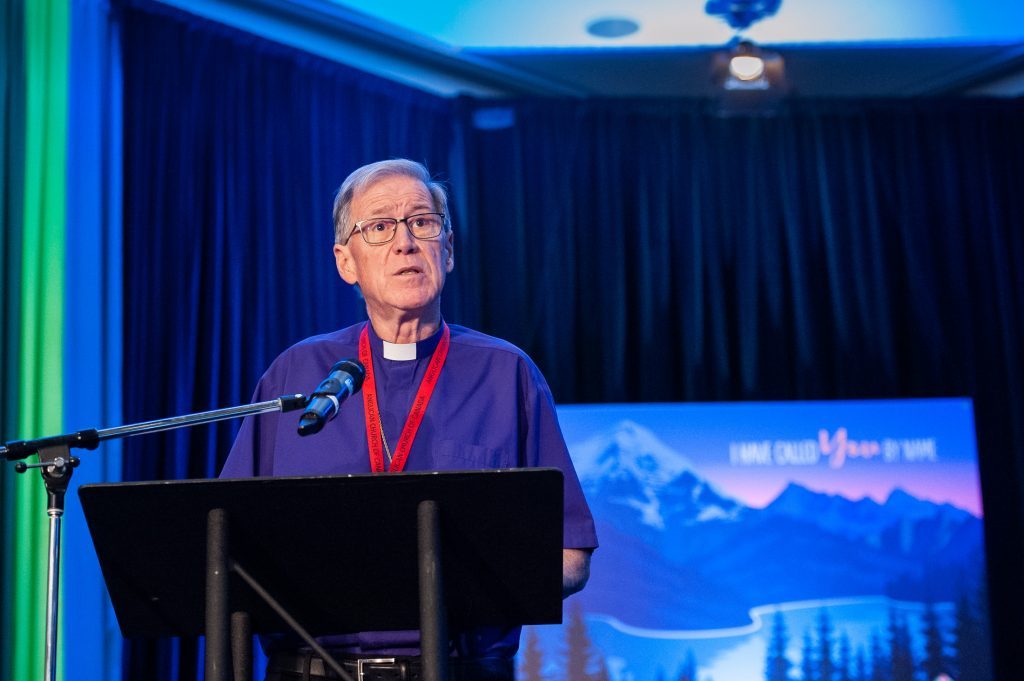 In an exercise intended to produce more compassionate discussions than those that sometimes prevailed during marriage canon discussion in 2016, members of the 2019 General Synod spent almost the entire afternoon of the gathering’s first official day of business hearing about and practicing ways of speaking and listening respectfully to one another.
In an exercise intended to produce more compassionate discussions than those that sometimes prevailed during marriage canon discussion in 2016, members of the 2019 General Synod spent almost the entire afternoon of the gathering’s first official day of business hearing about and practicing ways of speaking and listening respectfully to one another.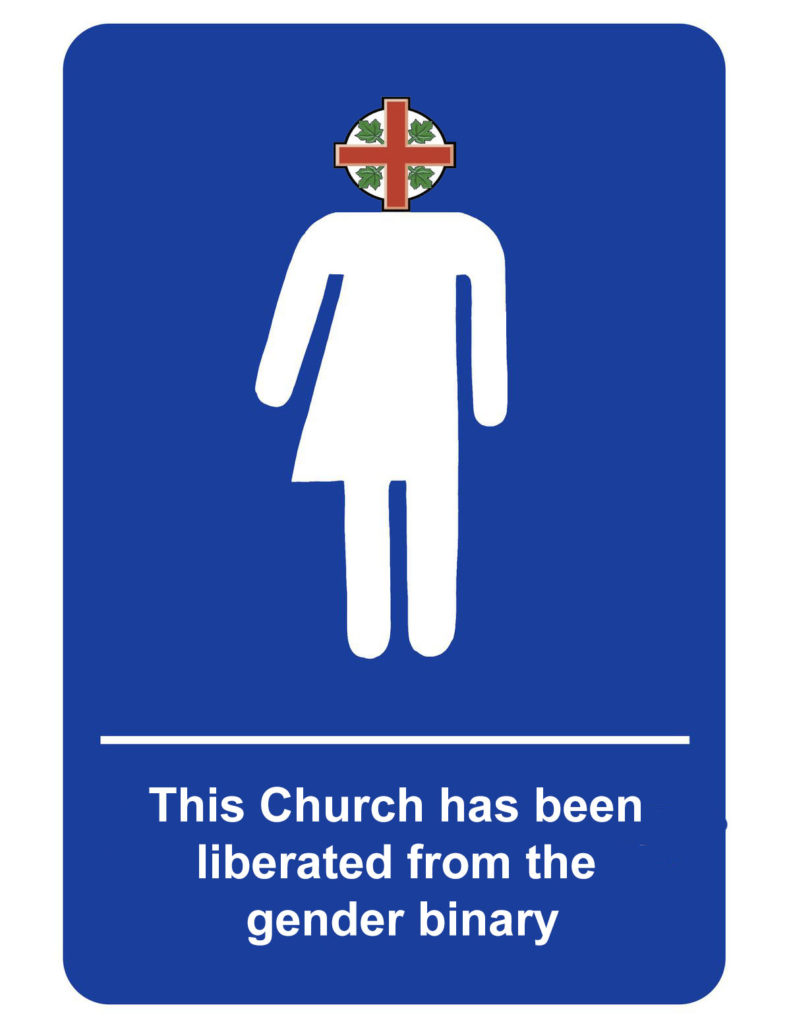
 The previous mandate of the Journal, as specified in the handbook of the General Synod, is to be “a national newspaper of interest to the members of the Anglican Church of Canada, with an independent editorial policy and not being an official voice of or for the church.”
The previous mandate of the Journal, as specified in the handbook of the General Synod, is to be “a national newspaper of interest to the members of the Anglican Church of Canada, with an independent editorial policy and not being an official voice of or for the church.”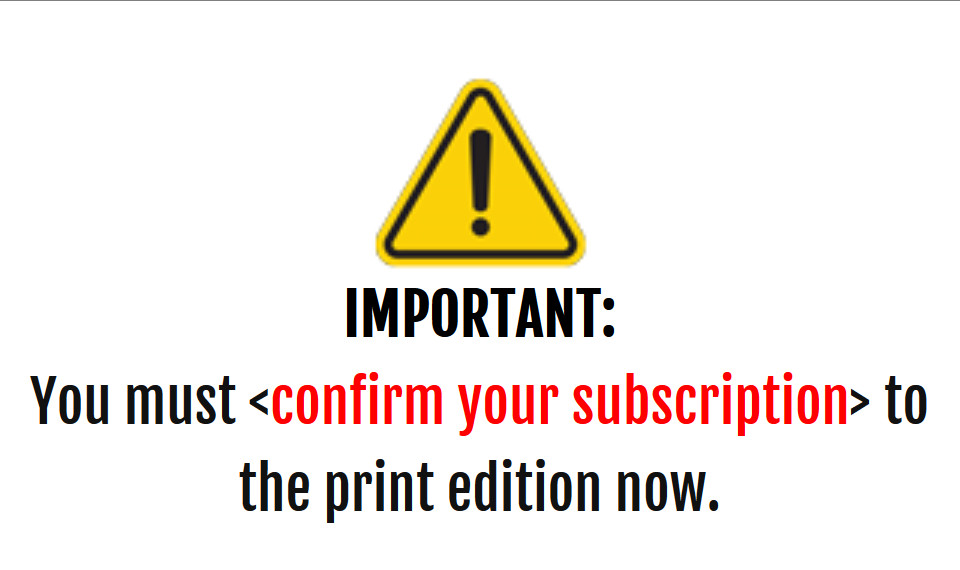
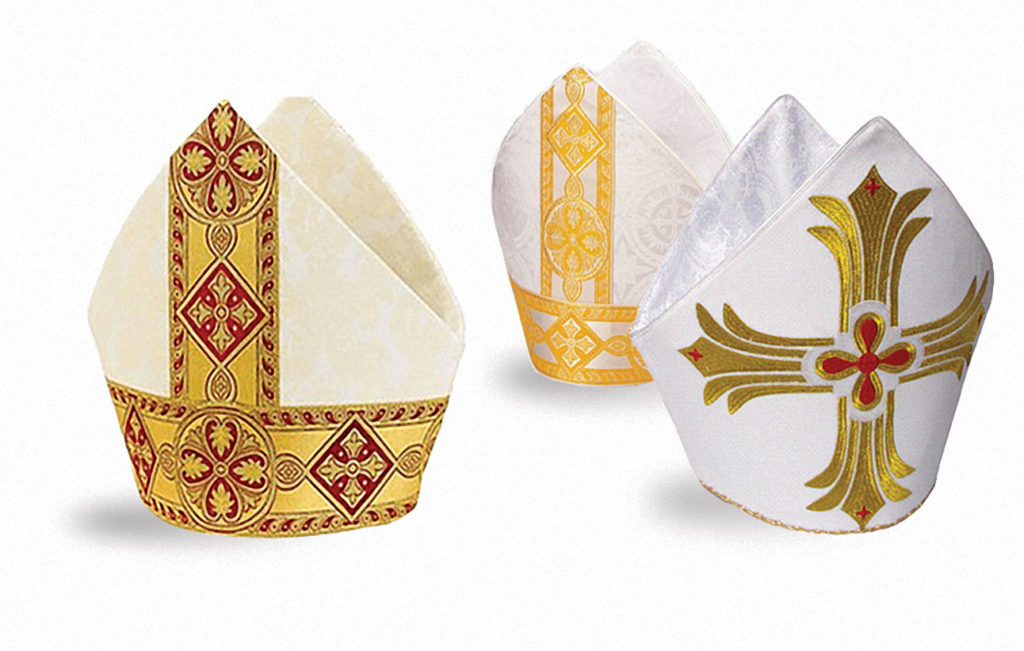 “The National House of Bishops has worked very hard since General Synod 2016—not only on the issues from General Synod 2016 and the ministry of the whole church, but on how we work and live together,” said Archbishop Fred Hiltz, primate of the Anglican Church of Canada. “We left this January meeting having wrestled with how we are the church and how we will remain united in Christ whatever the outcomes at General Synod 2019.”
“The National House of Bishops has worked very hard since General Synod 2016—not only on the issues from General Synod 2016 and the ministry of the whole church, but on how we work and live together,” said Archbishop Fred Hiltz, primate of the Anglican Church of Canada. “We left this January meeting having wrestled with how we are the church and how we will remain united in Christ whatever the outcomes at General Synod 2019.”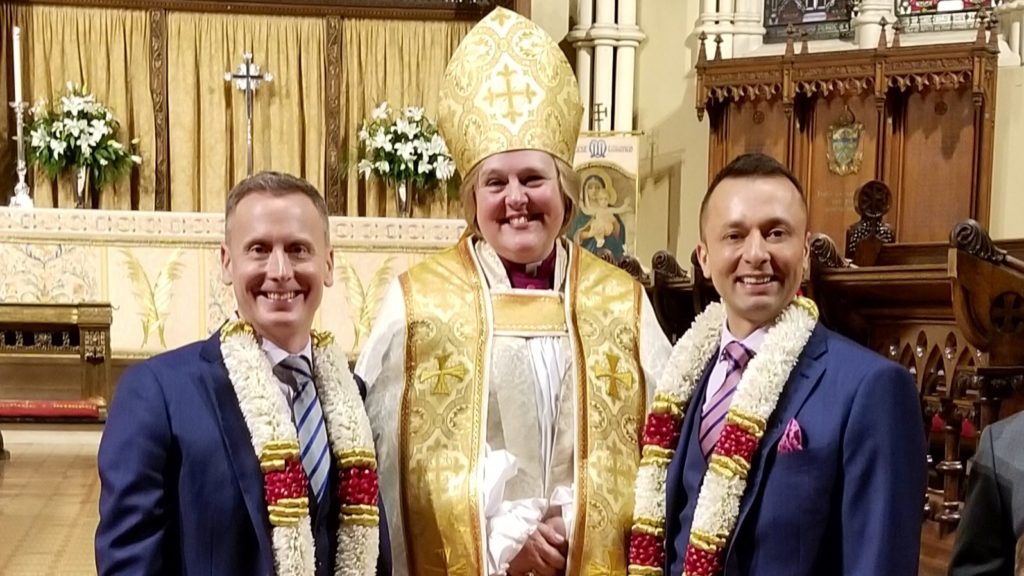
 The Anglican Church of Canada is trying to decide how those who worship the gods of inclusion and diversity can get along with those who prefer to worship God the Father, Son and Holy Spirit. Since it’s impossible, the church is industriously tangling itself into dense knots of confusion in the hope that the resulting impenetrable obfuscation will lull everyone into a passive torpor, unable to think straight, let alone act coherently.
The Anglican Church of Canada is trying to decide how those who worship the gods of inclusion and diversity can get along with those who prefer to worship God the Father, Son and Holy Spirit. Since it’s impossible, the church is industriously tangling itself into dense knots of confusion in the hope that the resulting impenetrable obfuscation will lull everyone into a passive torpor, unable to think straight, let alone act coherently. From
From